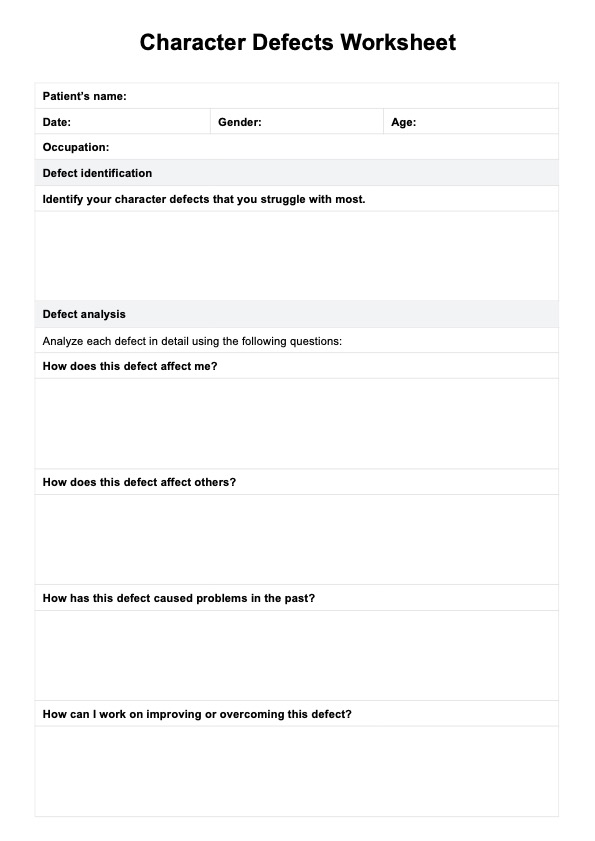In addiction treatment programs, particularly Alcoholics Anonymous (AA), character defects refer to the personal flaws or negative traits that contribute to destructive behaviors. Addressing these defects is part of the 12-step recovery process.

Character Defects Worksheets
Address negative traits and behaviors with our Character Defects Worksheets templates. Start your clients on their personal growth journey today.
Character Defects Worksheets Template
Commonly asked questions
You can identify defects of character through self-reflection, feedback from others, or structured tools like the Character Defects Worksheet. These methods help highlight areas where negative behaviors or traits are affecting your life.
Examples of character defects include egotism, self-condemnation, and dishonesty. Egotism may manifest as an inflated sense of self-importance, self-condemnation involves excessive self-criticism and guilt, and dishonesty can damage trust in relationships and hinder personal growth.
EHR and practice management software
Get started for free
*No credit card required
Free
$0/usd
Unlimited clients
Telehealth
1GB of storage
Client portal text
Automated billing and online payments











